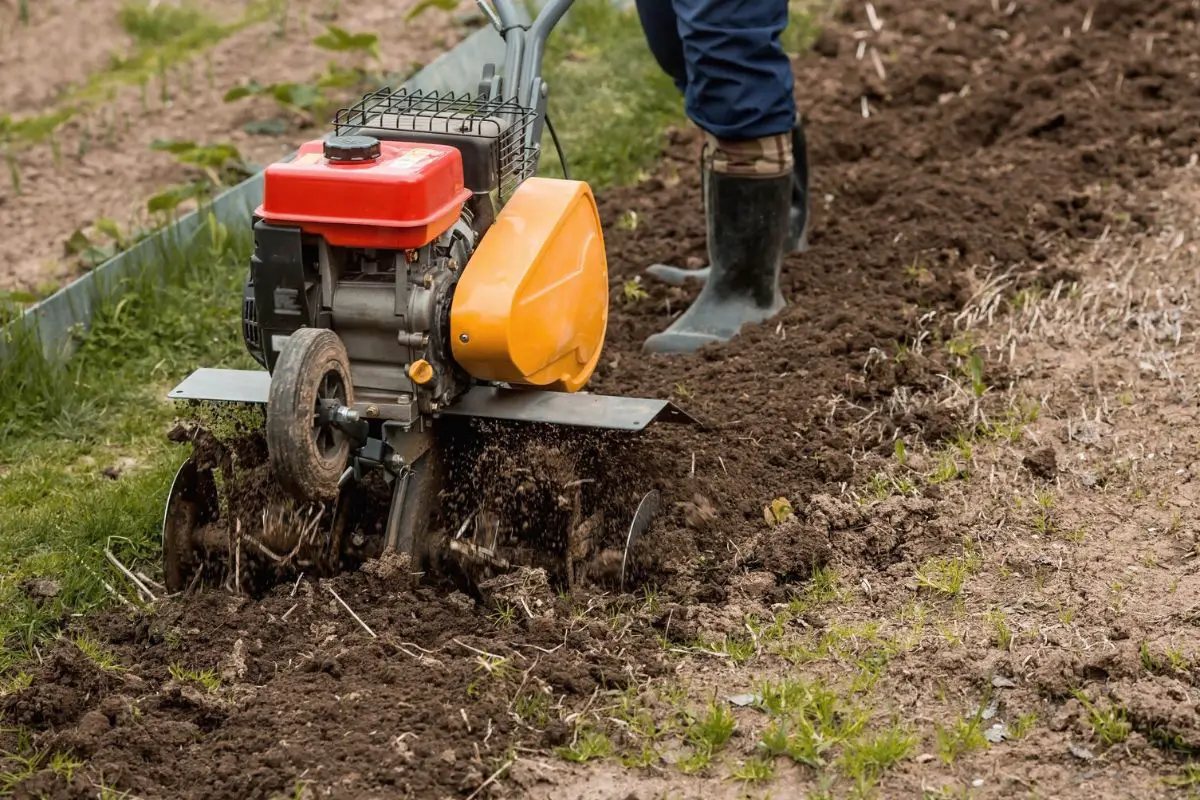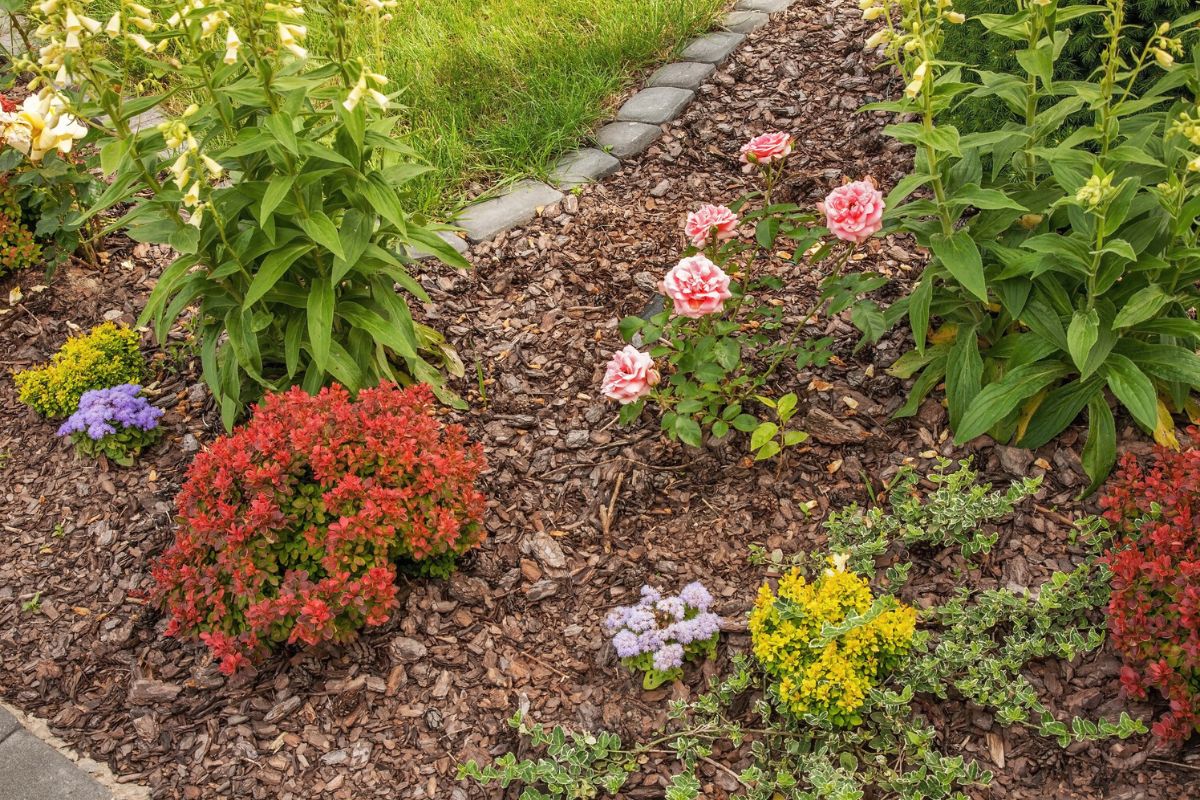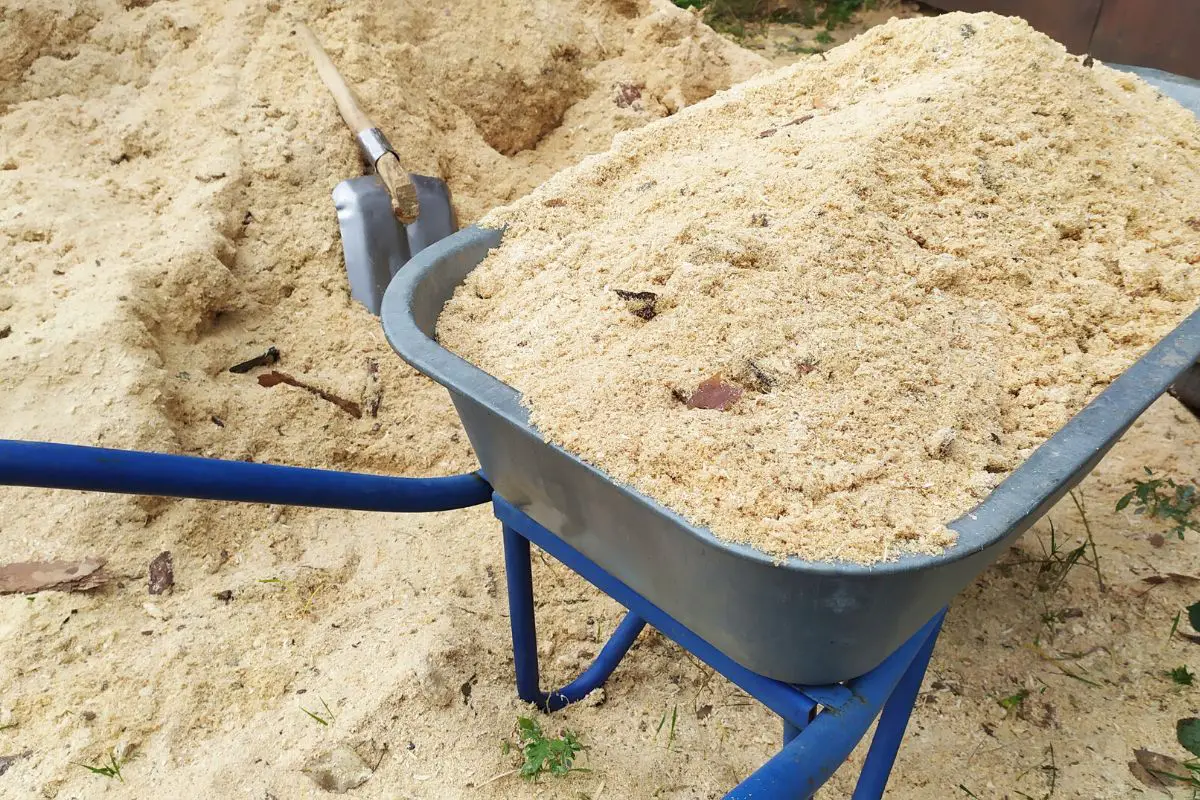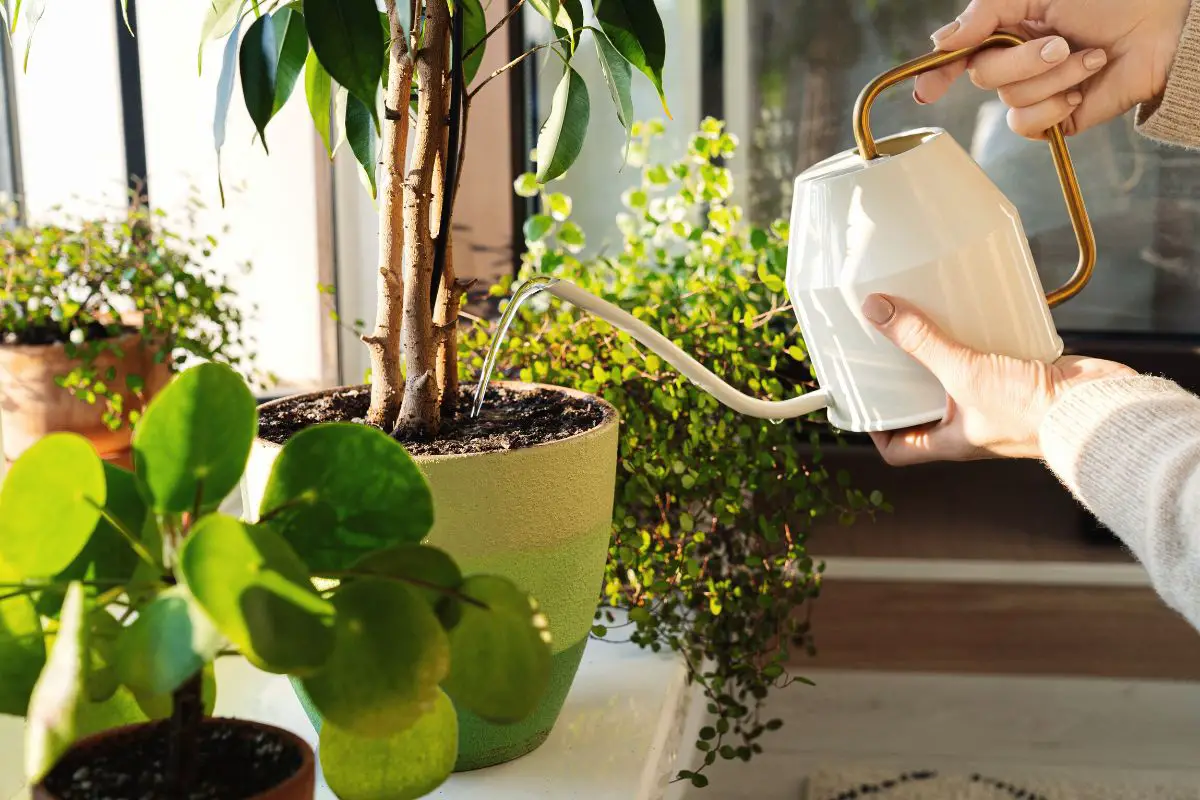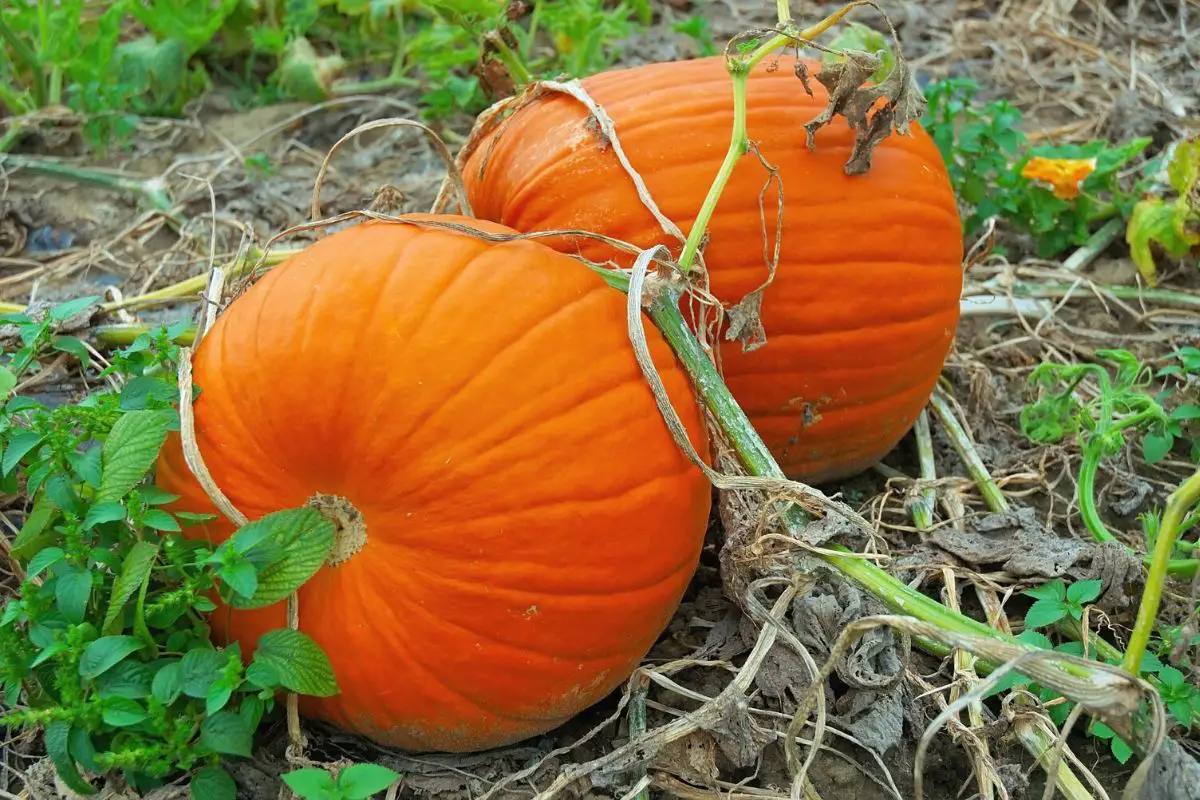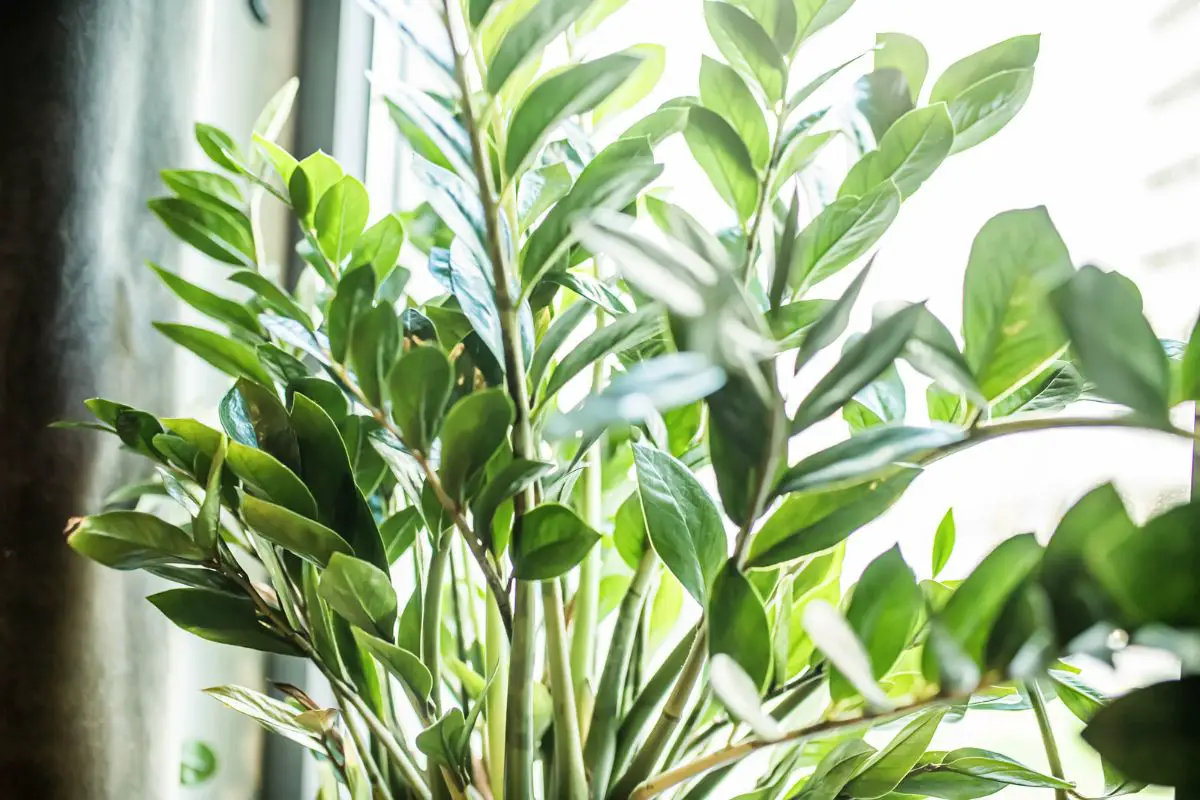Compact soil is a common problem for farms, but it can also happen in home gardens. Once the soil becomes too dense, plant roots cannot dig through it and water can’t pass through. It’s crucial to relieve this issue before growing plants in your garden.
Soil compaction usually occurs in gardens with clayey soil, frequent foot or vehicular traffic, lack of vegetation, and heavy rainfall. You can loosen the soil by tilling it in spring. Succession planting, mulching, and plant debris will then naturally protect the soil from compaction.
Most plants cannot survive in heavily compacted soil, so it’s important to understand this issue. In this article, I’ll explain the science of how it occurs and affects the soil and plants. I’ll also share tips on how to diagnose, fix, and prevent the problem.

Soil Compaction: An Overview
Soil compaction is a condition where soil particles are packed too tightly into a mass that’s impenetrable to air, water, or plant roots.
Plant roots naturally dig into the soil to access air (oxygen), moisture, and nutrients. Soil microbes also require these components to convert organic matter into forms accessible to plants.
If the soil is too dense, the roots won’t be able to penetrate the deeper soil layers, and there’ll be a lack of essential microbial activities. There also won’t be enough soil pores to facilitate air circulation or water infiltration.
The Science Behind It
Soil texture determines the soil’s moisture retention capacity, drainage, and fertility.
It can vary due to several factors, such as the following:
- Inherent materials or minerals
- Weather and climate (i.e., rainfall, temperature, sun exposure, freeze-thaw cycles)
- Vegetation and organisms (deposition of decaying organic matter)
- Animal behavior (i.e., burrowing and translocating materials)
- Human intervention like tillage activities (shallow or deep) and foot or vehicular traffic
Depending on the factors above, your garden may have one or a mix of the following textures:
- Clay (<0.002 mm) has the highest humus content trapped within clay aggregates, making it look dark. It has the smallest particle size and is prone to forming clumps, making it hardest to work with.
- Silt (0.002-0.05 mm) has larger particles than clay. It has a dusty or powdery consistency that comes from rocks and minerals that have been eroded by rain or broken down by freeze-thaw cycles. Due to its lightness, the particles are easily blown by the wind and deposited into the landscape.
- Sand (0.05-2 mm) has coarse particles. It lacks or contains a small amount of humus, making it appear lighter than the other soil types.
- Loam contains almost equal parts of the above soil types and is the soil type preferred among most plants (except for cacti and succulents).
Cultivated or disturbed soil can take 5-10 years to compact naturally. The rate at which this happens depends on the same factors and soil types listed above.
Porous soil particles like coarse sand are hard to push together to make a solid mass. The low amounts of organic matter give them a slightly water-repelling nature, allowing them to be resistant to compaction.
The higher the sand content in the soil, the less likely it is to become compacted. Conversely, compaction is more likely to occur in soil with a finer texture, such as clay and silt.
Finer particles can easily be pushed together to form clumps because they have better moisture retention capacity. Water will make the particles stick together and the subsequent dryness will solidify them.
When this happens, air and water cannot penetrate through the clumps of soil, depriving plant roots of essential materials for growth.
Topsoil vs. Subsoil Compaction
Topsoil is the upper 5-12 inches (13-30 cm) of soil that contains living and decaying plant or animal matter and microbes. The depth can vary depending on how deep you work organic matter into your garden soil.
The subsoil is the layer right underneath the topsoil. It is usually paler and denser due to the lack of organic matter. Some farms till the subsoil to boost yields, but the effect is temporary because it can naturally compact due to the weight aboveground.
The roots of most garden plants depend on the porosity and fertility of the topsoil to support life. Regular tilling or the abundance of plant roots and organic matter in the topsoil makes it more porous and less dense than the subsoil.
Deep-rooted trees may dig into the subsoil, but there isn’t enough nourishment from that layer. Therefore, the goal is to keep the topsoil loose and fertile to keep your garden conducive to plant growth.
Symptoms
Compaction can show visible signs on the soil surface, including the following:
- Crusty surface with cracks: When soil without mulch receives heavy rainfall followed by intense sunlight, the soil particles will clump together and form an impenetrable crust. You may also see cracks between the clumps.
- Water pooling on the soil surface: When you pour water over the crusty soil, you’ll notice the liquid pooling. If the water takes longer than a minute to infiltrate the ground, it could be because the soil has become compacted or hydrophobic (which occurs in severely underwatered soil).
- Weed overgrowth: Weeds, such as chickweed, chicory, and bluegrass, can take over bare patches in your garden if the soil is compacted. You’ll notice a stark difference between the weeds’ vibrance and your plants’ lackluster appearance.
Effects on Plant Health
Your plant’s appearance and yield can also help confirm if the soil is compacted:
- Stunted plant growth or lower yield: Plant roots growing in compacted soil won’t be able to pierce through the dense layer, making it even more challenging to reach valuable resources.
- Yellowing leaves: The roots’ inability to access nutrients in compacted soil will manifest aboveground as a symptom of nutrient deficiency. Yellowing leaves or veins (interveinal chlorosis) is a sign that the plant isn’t receiving enough nitrogen, iron, manganese, magnesium, and zinc.
- Crooked root crops: Carrots, radishes, and other taproots will have uncharacteristic shapes (i.e., shorter, bumpy) when grown in hard soil.
- Pest infestation: Pests are secondary symptoms because they tend to target stressed plants, which have less resistance.
Long-Term Impacts
Left unattended, garden soil will continue to compact.
As it gets denser, it can produce the following issues:
- The soil microbes will suffocate and become inactive due to the lack of oxygen.
- A portion of the remaining organic matter in the soil may undergo anaerobic decomposition. This process will release toxic substances that can kill plant roots.
- Ongoing compaction will eventually push away beneficial microbes and critters like earthworms.
- Over time, the soil will become less fertile.
- The powdery soil on the crusted surface will also be more susceptible to wind erosion or surface runoff.
Causes of Soil Compaction
Seeing the negative impacts of soil compaction in your garden, it’s important to understand what causes it so you can fix or prevent it in the future.
Below are the primary causes of soil compaction:
Human Activities
Too much water and poor timing of gardening activities can increase the risk of compaction.
- Working wet soil: Water works like a lubricant to reduce friction between soil particles. When you till wet soil, you push the particles together to form a clay-like consistency, which compacts as it dries.
- Excessive tilling: Tilling loosens soil aggregates to improve water, air, and root infiltration. However, too much can destroy soil structure and turn it into finer particles susceptible to compaction when wet.
- Heavy foot traffic: Stepping on the soil can push it downward and the force will make the particles stick together.
- Heavy machinery: Using large and heavy equipment like wheelbarrows or lawnmowers when the soil is wet also compacts the soil. That’s one reason why it’s best to mow your lawn before a rain.
Environmental Factors
Some gardens are more susceptible to compaction than others because of the following inherent traits:
- Soil type or texture: As discussed, soil with finer grains like clay or silt is more likely to compact when water comes through the small air spaces between the particles and pulls them together.
- Lack of organic matter: The varying sizes and shapes of partially decomposed organic matter give the soil structure, allowing it to resist compaction. Without it, the soil aggregates will stick together, making a solid, impenetrable soil mass. Although clay has humus, this is usually trapped inside clay aggregates and resistant to decomposition.
- Heavy rainfall: Gardens in flat areas with heavy rainfall are more likely to have compacted soil. Like foot traffic, rain can pound on the soil surface and push the particles together. The large volume of water delivered into the soil can worsen the situation as it binds the aggregates into a solid mass.
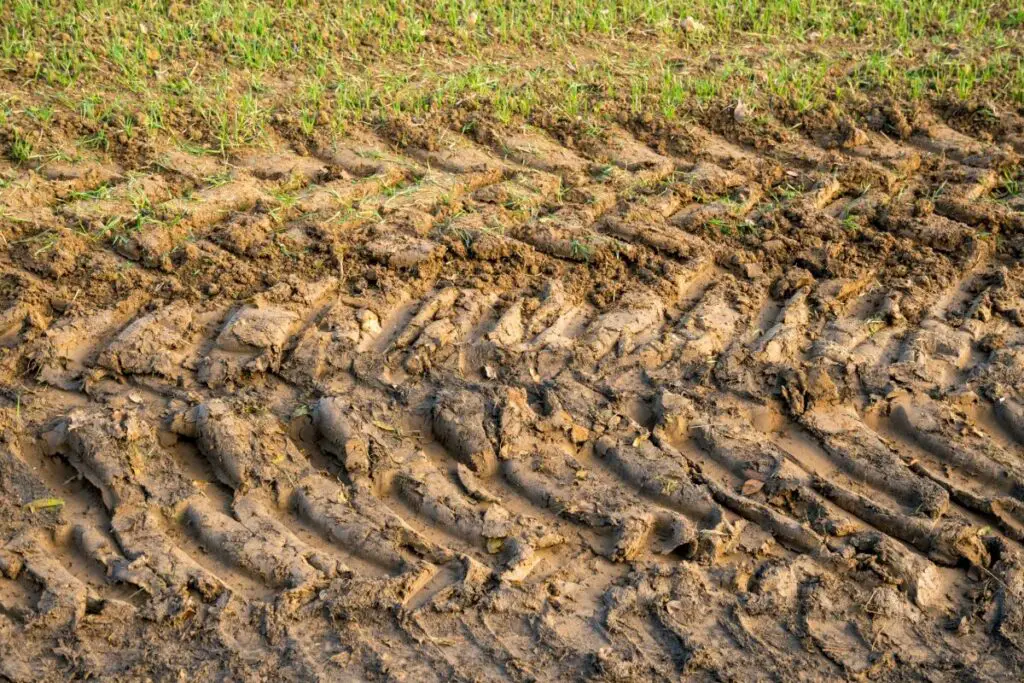
Diagnosing Soil Compaction in Your Garden
Some soil issues may present similar symptoms to compaction, such as hydrophobic soil. In the latter, there’s also poor water infiltration, but it requires an entirely different treatment.
Therefore, it’s important to diagnose soil compaction in your garden correctly.
Simple Tests for Home Gardeners
There are a few low-cost tests to confirm soil compaction in your garden. However, they can vary in accuracy. The first step is to wait about 2-3 days after a good rain or deep irrigation.
When the soil is no longer soggy, you can perform the following tests below:
Hand Test
The Hand Test is the simplest method to rule out hydrophobicity, which manifests as dry soil despite the recent rain or irrigation. If the soil is moist, you can proceed with confirming its compaction.
Scoop up a fistful of soil about 4-6 inches (10-15 cm) deep and squeeze it. If it crumbles in your hand, the soil is in good shape. On the other hand, if a clump forms, the soil is somewhat compacted.
Screwdriver or Stainless Chopstick Test
Many experts use a penetrometer to accurately determine the depth and severity of soil compaction. However, this tool can be expensive. At home, you can use a metal probe, such as a screwdriver or stainless chopstick, to test the resistance of the soil.
Push the probe to the depth you wish to work on. About 6-10 inches (15-25 cm) is usually enough for the roots of small garden plants like annual flowers and vegetables. Do this on multiple spots about 4-6 inches (10-15 cm) apart.
You can mark or calibrate the probe to determine the depth of compaction and assess the result based on the following:
- If the tool pierces through the soil with little effort, it means the soil is easier to work with.
- Initial resistance followed by smooth movement through the soil means there’s surface compaction.
- Smooth movement followed by a strong resistance means the surface is okay but the layer below is compacted. It can help you pinpoint the beginning of compaction underneath the surface.
- A strong resistance all the way through indicates severely compacted soil.
When to Seek Professional Assessment
If you’re planning to grow trees or shrubs whose roots can dig over 2 feet (60 cm) deep, it’s best to seek professional help.
Deep tillage without the appropriate tools and strategies can cause long-term damage to soil structure. You also have to consider underground structures like septic tanks and water lines that may be affected by deep-rooting plants.
Fixing Compacted Soil
You can fix garden soil with simple gardening tools if the compaction is up to 2 feet (60 cm) deep. If it’s any deeper than that, you may need to get help or hire an experienced gardener.
In this section, I’ll explore some practical tips you can use to relieve soil compaction.
Aeration Techniques
The goal when fixing compacted soil is to improve water infiltration and air circulation within the root zone.
The best time to do this is in spring or fall about 3-7 days after a thorough irrigation or a good amount of rain that can moisten the ground to the depth you want to work on.
With this in mind, you can employ the following tips below:
Core or Plug Aeration
The core or plug aeration method is suitable for relieving compaction in lawns about 1-6 inches (2.5-15 cm) deep. You can use a motor-powered aerator for larger areas or a handheld tool for smaller ones.
It works by driving a core or plug aerator into the ground at your desired depth and pulling it out. It will then extract plugs about half an inch (1.3 cm) in diameter, which you can leave on the surface to naturally decompose.
The holes can be spaced about 2-6 inches (5-15 cm) apart for optimum aeration. I also recommend core aerating in combination with applying sand to prevent your lawn from compacting again.
You can spread the sand over your lawn and work it into the holes with a level rake. This will ensure an even distribution of moisture, air, and nutrients into the root zone and facilitate better grass growth.
Spike Aeration
Spike aeration is an alternative to core aeration. You simply use a handheld tool like a garden fork to puncture the soil to a depth of 1-6 inches (2.5-15 cm) without extracting plugs.
It also works by improving air and water infiltration but only in the short term. It can present a few drawbacks compared to core aeration. As you puncture the soil, you push together the particles around the holes, causing compaction.
If you have a busy lawn (i.e., for playing), I recommend core aerating it instead and applying sand to amend it.
Tilling
Tilling is the process of turning over the soil to make it ready for planting. You can choose among many gardening tools to do shallow or deep tillage.
Deep tillage is only necessary for new gardens that are severely compacted over 6 inches (15 cm) deep. I recommend doing it in spring about 2-3 weeks before planting.
- Small flower and vegetable beds (4×2 feet or 1.2×0.6 m): Use a twist tiller to loosen compacted soil up to 8 inches (20 cm) deep.
- Larger area or multiple plots: Rototillers can till larger garden spaces much faster and also work up to 8 inches (20 cm) deep.
- Deep-rooted plants: Some border shrubs and vegetables like pumpkins need loose soil to develop strong and deep roots. You can use a shovel or spade to loosen dense soil up to 12 inches (30 cm) deep.
On the other hand, you can employ shallow tillage in the following scenarios:
- Surface compaction (up to 1.5 inches or 3.8 cm deep): Use a rotary cultivator and roll it over the area that needs loosening.
- Incorporating mulch or organic matter into the soil: You can use a spade or shovel to work old mulch, plant matter, or amendments in the upper 6 inches (15 cm) of the soil in the spring or to prepare the soil for fall planting.
Organic Amendments
A compacted garden soil can still be revived to make it suitable for plant life again.
The aeration and tilling methods discussed above can help with the short-term enhancement of the soil structure. To make the effect last longer, it’s best to add organic amendments that work for improving drainage, air circulation, and microbial activities.
Here are some excellent options:
- Compost: Composting is an eco-friendly way of repurposing plant-based food waste, materials, and garden litter. Working finished compost into your garden soil will introduce healthy microbial populations, organic matter, and slow-release nourishment for your plants.
- Manure: This is an excellent amendment if you have organic sources like chicken, cow, or horse farms. It works similar to compost and is widely used in vegetable gardens. However, some cow or horse manure may contain weed seeds, which can result in a weed infestation in your garden. You can avoid this by composting the manure before application or using only chicken manure.
- Old organic mulch: Materials like partially decomposed sawdust, bark, and wood chips are excellent at preventing soil compaction. However, these carbon-rich organic mulches will encourage soil microbes to consume and temporarily tie up nitrogen in the decomposition process.
You can work about 2-3 inches (5-7.6 cm) of organic amendment into the top 6-8 inches (15-20 cm) of garden soil.
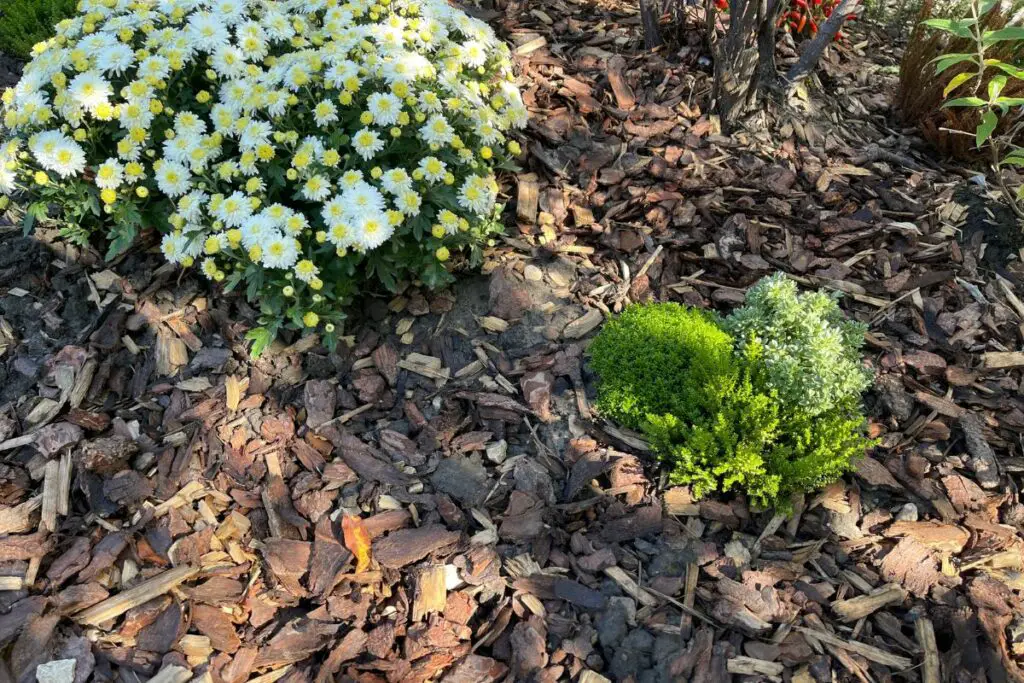
Plants as a Natural Solution
After the initial fixes and amendments, you can prevent the soil from compacting again by growing plants that can break up compacted soil layers.
Deep-Rooted Plants
Shrubs and bushes have deep and wide woody roots that can pierce through compacted soil to loosen them. However, they’re mostly perennials, so you can’t use the spot for other plants right away.
They’re an excellent option if you have no clear plans for your garden within the next three years or so and just want to maintain the soil.
Flowers and Vegetables That Tolerate Clay Soil
Some flowers and vegetables can tolerate clayey or slightly compacted soil. They might not grow as well as they would in well-draining soil, but their roots can help loosen dense soil.
Annual vegetables you can choose from include the following:
- Cabbage
- Broccoli
- Kale
- Cauliflower
- Brussels sprouts
You can plant them about four weeks before the last frost for a spring harvest or mid to late summer for a fall harvest. During their growing season, their roots can dig 12-18 inches (30-45 cm) deep.
On the other hand, you can choose from the following if you want a flower garden:
- Black-eyed Susan: It’s a low-maintenance summer-flowering plant that can be grown as an annual or short-lived perennial, depending on the variety.
- Daylily: It’s also a low-maintenance perennial plant that thrives in poor or clayey soil. It can spread through underground stems called rhizomes. Leaving it in your garden for a few years can naturally relieve compaction while giving you colorful flowers every year. However, the quality of the blooms will diminish as the clumps get bigger after 4-5 years, requiring division.
- Yarrow: This perennial flower has a long blooming time from spring to early fall under the right conditions. In clayey soil, they might bloom shorter, typically in the summer.
- Zinnia: This annual flower is a popular companion for vegetables because it attracts pollinators (i.e., bees) and predatory insects and birds (i.e., ladybugs and hummingbirds) into your garden.
- Bee balm: Although shallow-rooted, bee balm has rhizomes and fibrous roots that spread into the ground and keep it from becoming compact. It also invites hummingbirds, bees, and butterflies to your garden.
Cover Crops
Deep-rooted cover crops can also help fix and maintain garden soil before planting your desired plants. However, there are limited options suitable for home gardens.
I personally like planting crimson clover after harvesting fall crops. This cover crop can relieve compaction, suppress weeds, and replenish soil nitrogen. It will fade from the winter freeze, or you can mow it before spring planting.
Asian radish (daikon) is also an excellent fall-season cover crop. Its thick, white taproot can relieve soil compaction around 12 inches (30 cm) deep. The foliage will die in cold regions where winters stay below 20 °F (-7 °C) for at least a week.
Alternative Gardening Methods
If the soil compaction is severe and requires more work than you can handle, you can instead create raised garden beds. Note that this option warrants high initial costs. It also limits the space you can plant on.
Still, if you want to give it a try, it has the following benefits:
- You can select and prepare appropriate soil for your desired plants.
- The soil is unaffected by the existing pests or diseases in your garden soil.
- There’s a lower risk of weed problems.
- There’s no need to till the soil.
- A raised garden looks neat and organized.
- It’s easier to work on and safer on the back and knees because it’s higher.
Preventive Measures
Being mindful of your practices can help protect your plants and soil and allow you to enjoy a sustainable gardening experience.
After fixing your compacted soil, you can prevent the issue from reoccurring with the following measures:
- Avoid excessive tilling, as it can destroy soil structure. You’ll end up with very fine soil particles prone to compaction.
- Avoid overwatering. As discussed, water is the key to soil compaction as it works as a lubricant between soil particles. Use drip irrigation when possible for a gentle and efficient delivery of moisture into the root zone.
- Apply at least 2 inches (5 cm) of organic mulch around your plants to prevent soil compaction or erosion from heavy rain.
- Minimize activities over wet soil (i.e., playing on the lawn or mowing the grass right after a heavy rain).
- Wait until the soil is no longer soggy before working on it.
- Use light equipment and machinery for regular gardening (or construction equipment when working on a house build or repair).
- Create designated pathways made of stones or concrete for foot and vehicular traffic to prevent compaction in the planting space.
- Provide enough space (1-2 feet or 30-60 cm) between plant rows for gardening activities like weeding, watering, or pruning.
- Apply 2-4 inches (5-10 cm) of straw mulch or two layers of cardboard on designated walkways between plant rows.
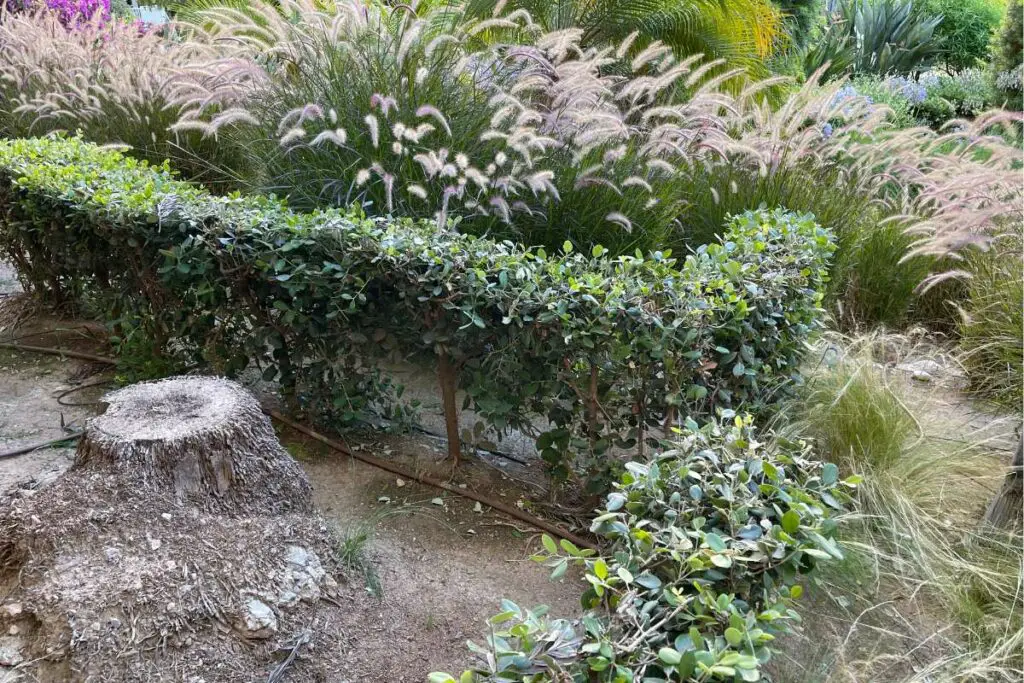
Long-Term Soil Management Strategies
To maintain your soil health as long as possible, it’s crucial to remember the following:
- Inspect the mulch volume every month and replenish or replace it as needed.
- For spots without mulch, keep an eye out for signs of compaction, such as crusty soil surface, water runoff, or weed overgrowth.
Alternatively, you can employ sustainable gardening practices, such as the following:
No-Till Method
After the initial deep tilling in spring, you can cut back on tilling the soil.
Partially decomposed mulch and dried plant litter that’s void of diseases can remain on the surface to buffer the weight of rain or traffic and protect the soil underneath. They will gradually break down and introduce humus into the soil underneath.
Crop Rotation and Succession Planting
To complement the no-till method, you can practice crop rotation and succession planting.
- Crop rotation is when you avoid planting the same family of plants in the same spot for 2-3 years to prevent soil-borne plant pathogens from persisting.
- Succession planting means growing a new plant in the same spot shortly after the old one fades. This helps prevent bare soil that’s at higher risk of compaction and can be taken over by weeds.
If the soil has been properly tilled and has great drainage and moisture retention, you can avoid soil disturbance for several years. You can simply poke through the surface litter and plant seeds or dig a small hole to plant seedlings.
With strategically designed pathways, you can skip tilling and prevent compaction in your planting space.
Final Thoughts
Soil compaction can deprive plants of essential nutrients, moisture, and air. Seeds can’t germinate and seedlings can’t grow enough roots in such a condition.
Established plants may tolerate compacted soil for a while, but the lack of proper air and moisture infiltration in the root zone will eventually cause plant stress. There’ll also be less microbial activity and your plants will show signs of nutrient deficiency.
Therefore, it’s important to address the issue as soon as possible to ensure your plants grow healthily and your garden remains vibrant.
If you have questions about addressing soil compaction in your home garden, feel free to reach out.

